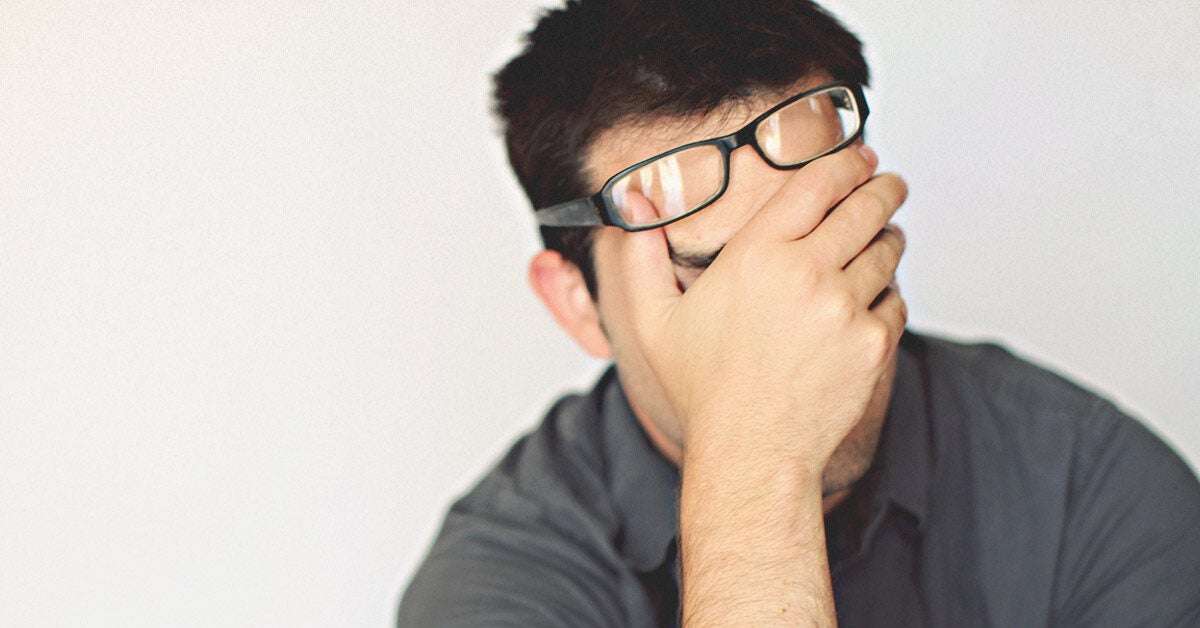Diagnosis
If you have chronic or recurrent headaches, your doctor may conduct physical and neurological exams, then try to pinpoint the type and cause of your headaches using these approaches:
Your pain description
Your doctor can learn a lot about your headaches from a description of your pain. Be sure to include these details:
- Pain characteristics. Does your pain pulsate? Or is it constant and dull or sharp or stabbing?
- Pain intensity. A good indicator of the severity of your headache is how much you’re able to function while you have it. Are you able to work? Do your headaches wake you or prevent you from sleeping?
- Pain location. Do you feel pain all over your head, on only one side of your head, or just on your forehead or behind your eyes?
Imaging tests
If you have unusual or complicated headaches, your doctor may order tests to rule out serious causes of head pain, such as a tumor. Two common tests that can be used to image your brain include:
- Magnetic resonance imaging (MRI). An MRI scan combines a magnetic field, radio waves and computer technology to produce clear images.
- Computerized tomography (CT). A CT scan is a diagnostic imaging procedure that uses a series of computer-directed X-rays to provide a comprehensive view of your brain.
More Information
- CT scan
- MRI
Treatment
Some people with tension-type headaches don’t seek medical attention and try to treat the pain on their own. Unfortunately, repeated use of pain relievers that are available without a prescription can actually cause another type of headache, medication overuse headache.
Acute medications
A variety of medications, both nonprescription and prescription, are available to reduce the pain of a headache, including:
- Pain relievers. Simple pain relievers available without a prescription are usually the first line of treatment for reducing headache pain. These include the drugs aspirin, ibuprofen (Advil, Motrin IB, others) and naproxen sodium (Aleve).
- Combination medications. Aspirin or acetaminophen (Tylenol, others) or both are often combined with caffeine or a sedative drug in a single medication. Combination drugs may be more effective than single-ingredient pain relievers. Many combination drugs are available without a prescription.
- Triptans and narcotics. For people who experience both migraines and episodic tension-type headaches, a triptan can effectively relieve the pain of both headaches. Opioids, or narcotics, are rarely used because of their side effects and potential for dependency.
Preventive medications
Your doctor may prescribe medications to reduce the frequency and severity of attacks, especially if you have frequent or chronic headaches that aren’t relieved by pain medication and other therapies.
Preventive medications may include:
- Tricyclic antidepressants. Tricyclic antidepressants, including amitriptyline and protriptyline, are the most commonly used medications to prevent tension-type headaches. Side effects of these medications may include constipation, drowsiness and dry mouth.
- Other antidepressants. Evidence also supports the use of the antidepressants venlafaxine (Effexor XR) and mirtazapine (Remeron).
- Anticonvulsants and muscle relaxants. Other medications that may prevent tension-type headaches include anticonvulsants, such as gabapentin and topiramate (Topamax, Qsymia, others). More study is needed.
Preventive medications may require several weeks or more to build up in your system before they take effect. So don’t get frustrated if you haven’t seen improvements shortly after you begin taking a drug.
Your doctor will monitor your treatment to see how the preventive medication is working. In the meantime, overuse of pain relievers for your headaches may interfere with the effects of the preventive drugs. Ask your doctor about how often to use pain relievers while you’re taking preventive medication.
There is a problem with information submitted for this request. Review/update the information highlighted below and resubmit the form.
From Mayo Clinic to your inbox
Sign up for free, and stay up to date on research advancements, health tips and current health topics, like COVID-19, plus expertise on managing health.
ErrorEmail field is required
ErrorInclude a valid email address
To provide you with the most relevant and helpful information, and understand which information is beneficial, we may combine your email and website usage information with other information we have about you. If you are a Mayo Clinic patient, this could include protected health information. If we combine this information with your protected health information, we will treat all of that information as protected health information and will only use or disclose that information as set forth in our notice of privacy practices. You may opt-out of email communications at any time by clicking on the unsubscribe link in the e-mail.
Thank you for subscribing!
You’ll soon start receiving the latest Mayo Clinic health information you requested in your inbox.
Sorry something went wrong with your subscription
Please, try again in a couple of minutes
Lifestyle and home remedies
Rest, ice packs or a long, hot shower may be all you need to relieve a tension-type headache. A variety of strategies can help you reduce the severity and frequency of chronic tension-type headaches without using medicine. Try some of the following:
- Manage your stress level. One way to help reduce stress is by planning ahead and organizing your day. Another way is to allow more time to relax. And if you’re caught in a stressful situation, consider stepping back.
- Go hot or cold. Applying heat or ice — whichever you prefer — to sore muscles may ease a tension-type headache. For heat, use a heating pad set on low, a hot-water bottle, a warm compress or a hot towel. A hot bath or shower also may help. For cold, wrap ice, an ice pack or frozen vegetables in a cloth to protect your skin.
- Perfect your posture. Good posture can help keep your muscles from tensing. When standing, hold your shoulders back and your head level. Pull in your abdomen and buttocks. When sitting, make sure your thighs are parallel to the ground and your head isn’t slumped forward.
Alternative medicine
The following nontraditional therapies may help if you have tension-type headache pain:
- Acupuncture. Acupuncture may provide temporary relief from chronic headache pain. Acupuncture practitioners treat you using extremely thin, disposable needles that generally cause little pain or discomfort. Acupuncture is typically safe when performed by an experienced acupuncturist who follows safety guidelines and uses sterile needles.
- Massage. Massage can help reduce stress and relieve tension. It’s especially effective for relieving tight, tender muscles in the back of your head, neck and shoulders. For some people, it may also provide relief from headache pain.
- Deep breathing, biofeedback and behavior therapies. A variety of relaxation therapies are useful in coping with tension-type headaches, including deep breathing and biofeedback.
Coping and support
Living with chronic pain can be difficult. Chronic pain can make you anxious or depressed and affect your relationships, your productivity and the quality of your life.
Here are some suggestions:
- Talk to a counselor or therapist. Talk therapy may help you cope with the effects of chronic pain.
- Join a support group. Support groups can be good sources of information. Group members often know about the latest treatments. Your doctor may be able to recommend a group in your area.
What is a tension headache?
A tension headache is the most common type of headache. It can cause mild, moderate, or intense pain behind your eyes and in your head and neck.
A tension headache can feel like a tight band around your forehead.
Most people who experience tension headaches have episodic headaches that occur one or two times per month on average. However, tension headaches can also be chronic.
Symptoms of a tension headache
Symptoms of a tension headache include:
- dull head pain
- pressure around your forehead
- tenderness around your forehead and scalp
- difficulty focusing
- irritability or fatigue
- no nausea or vomiting with the above symptoms
The pain will usually be mild or moderate.
Tension headache vs migraine
In cases of intense pain, you might confuse your tension headache with migraine. This is a type of headache that causes throbbing pain on one or both sides of your head. Migraines are moderate to severe in intensity, while tension headaches are mild to moderate. Migraines can also be worsened by physical activity, while tension headaches cannot.
Tension headaches don’t have all the symptoms of migraine attacks, such as nausea and vomiting. In rare cases, your tension headache can lead you to be sensitive to light and loud noises, similar to migraine attacks.
Considerations
In severe cases, a healthcare professional may run tests to rule out other problems, such as a brain tumor.
Tests used to check for other conditions may include a CT scan, which uses X-rays to take pictures of your internal organs. A healthcare professional may also use MRI, which allows them to examine your soft tissues.
Preventing future tension headaches
Since tension headaches are often caused by specific triggers, identifying the factors that cause your headaches is one way to prevent future episodes.
A headache diary can help you determine the cause of your tension headaches.
Record your:
- daily meals
- beverages
- activities
- any situations that trigger stress
For each day that you have a tension headache, make a note of it. After several weeks or months, you may be able to make a connection.
For example, if your journal shows that headaches occurred on days when you ate a particular food, that food may be your trigger.
Outlook for people with tension headaches
Tension headaches often respond to treatment and rarely cause any permanent neurological damage. Still, chronic tension headaches can affect your quality of life.
These headaches can make it difficult for you to participate in physical activities. You may also miss days of work or school. If it becomes a serious problem, talk with a healthcare professional.
It’s important to not ignore severe symptoms. Get medical attention immediately if you have a headache that starts suddenly or a headache accompanied by:
- slurred speech
- loss of balance
- a high fever
- weakness
- numbness
- vision changes
This can indicate a much more serious problem, such as:
- a stroke
- a tumor
- an aneurysm




